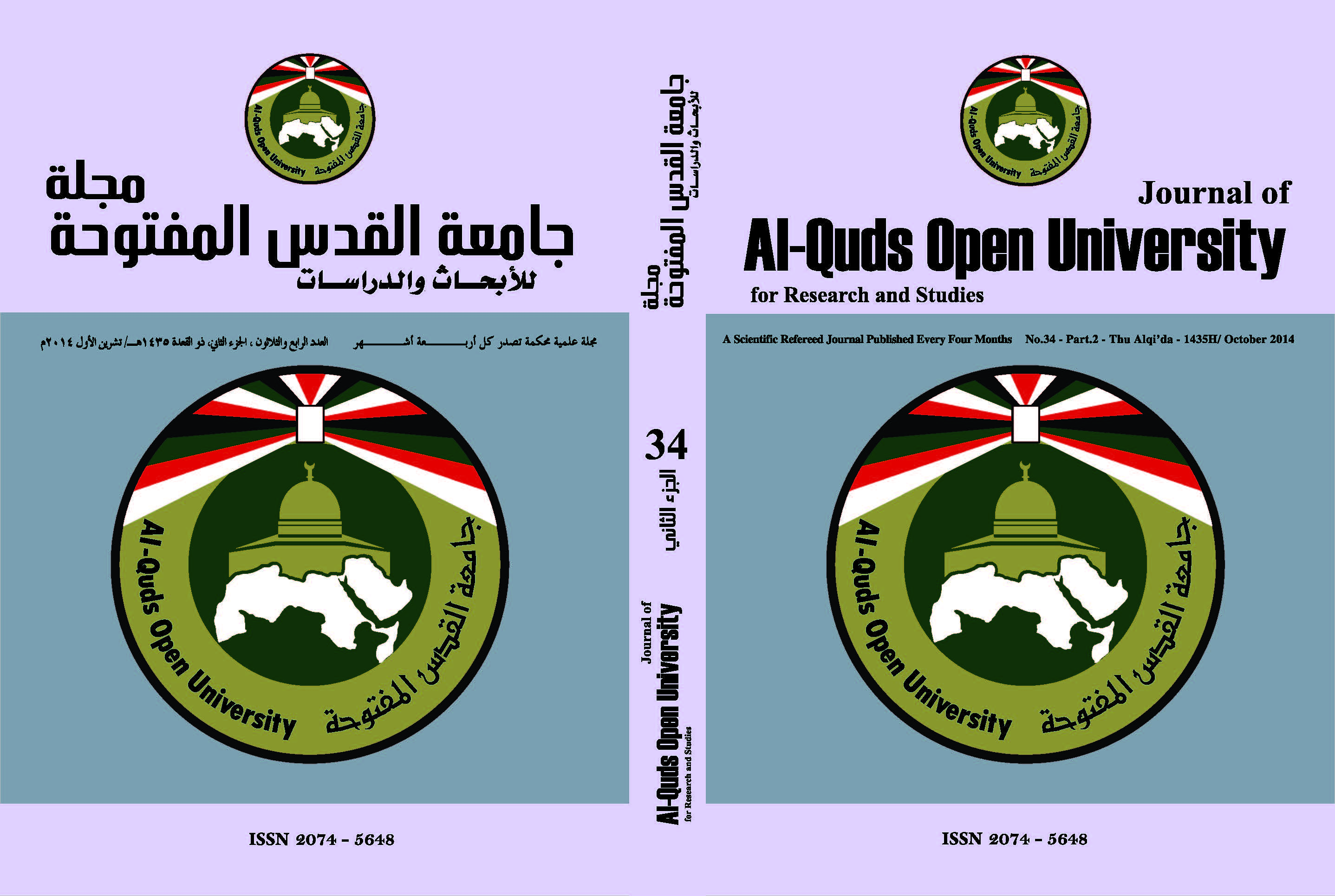Personality Type and its Relationship with Psychosomatic Disorders among Saudi Population
Keywords:
personality types, psychosomatic disorders, Saudi society.Abstract
This study aimed to investigate the relationship between personality
types and the level of psychosomatic disorder among Saudi society, as well as
the disclosure of the impact of some demographic variables (gender, marital
status and level of education) in the level of psychosomatic disorders.
The sample consisted of (524) adult of Saudi society in the city of
Jeddah, in the summer semester of2012/ 2013.The scale of personality types
was developed by the researchers.The researcher benefited from the scale of
Myers- Briggs (MBTI) and the personality types scale (PTI) , in addition to
using the list of psychosomatic disorders prepared by Bani- Mustafa, (2003) .
The study indicated that personality types most prevalent among the
Saudi society in order were (ISTJ, ISFP, ESTJ, INFP, and ISFJ) .The results
showed no statistically significant relationship between personality types and
the psychosomatic status at the level of confidence (α =0.05) .Furthermore,
results showed male suffer more than females regarding the psychosomatic
disorder, and the differences between genders were significant at (α =0.05).
Significant differences were found between (marital statuses) ; people who
are widowed, separated or married suffer from psychosomatic disorder more
than single people.
Downloads
Published
How to Cite
Issue
Section
License
- The editorial board confirms its commitment to the intellectual property rights
- Researchers also have to commit to the intellectual property rights.
- The research copyrights and publication are owned by the Journal once the researcher is notified about the approval of the paper. The scientific materials published or approved for publishing in the Journal should not be republished unless a written acknowledgment is obtained by the Deanship of Scientific Research.
- Research papers should not be published or republished unless a written acknowledgement is obtained from the Deanship of Scientific Research.
- The researcher has the right to accredit the research to himself, and to place his name on all the copies, editions and volumes published.
- The author has the right to request the accreditation of the published papers to himself.













_2.png)
_.png)
_2.png)
_1.png)
_.png)

